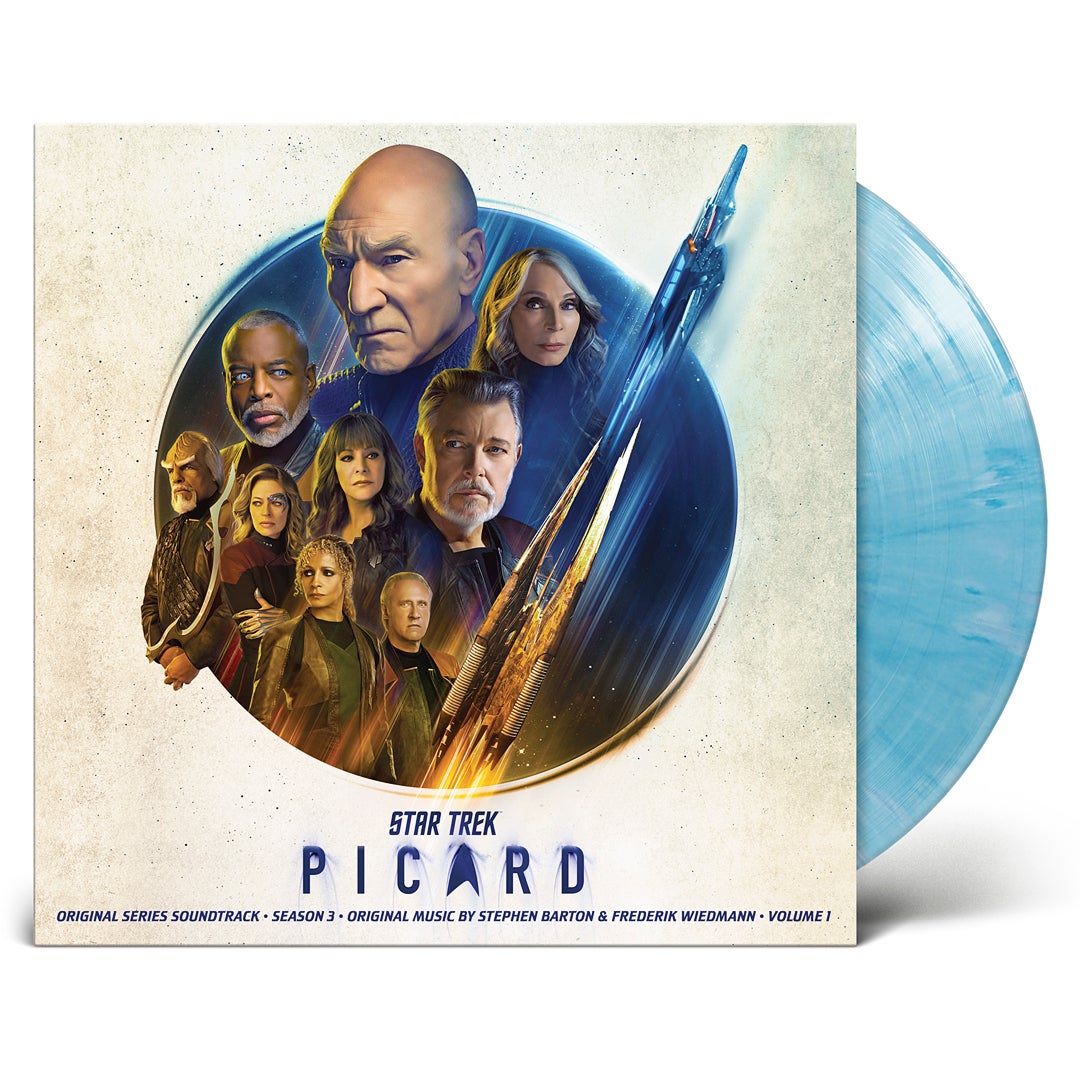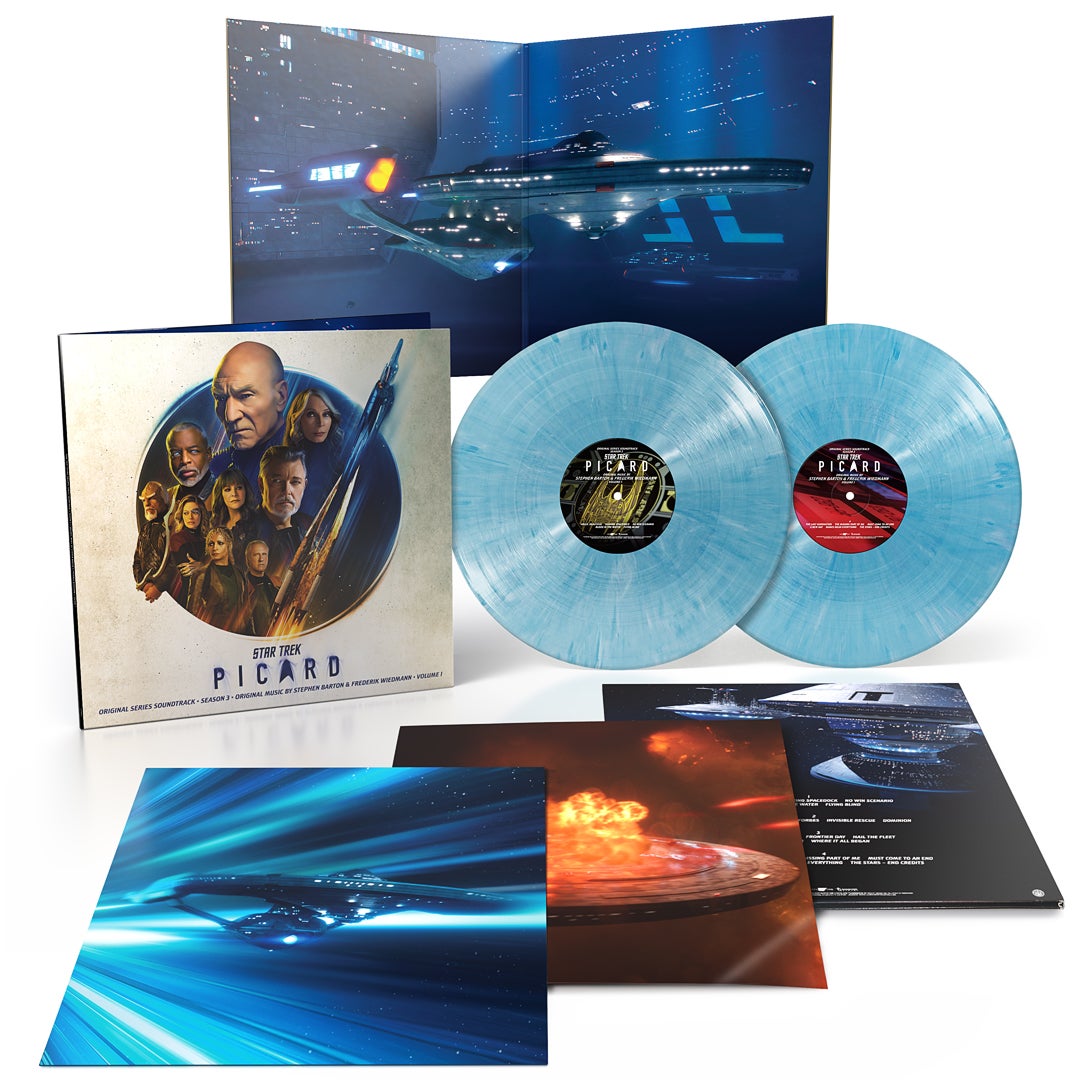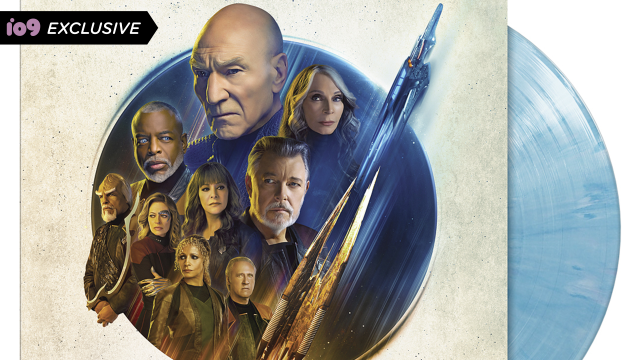Balancing both old-school leitmotifs and modern musical themes, the score for Star Trek: Picard is getting a brilliant vinyl release. We have an exclusive interview with the composers and a comment from showrunner Terry Matalas on the music of the show.
Star Trek: Picard show follows Patrick Stewart’s iconic Starfleet hero Jean-Luc Picard. The current season — Picard’s third and final instalment — has featured veterans of Star Trek: The Next Generation as well as new characters, with a cast that includes LeVar Burton, Michael Dorn, Jonathan Frakes, Gates McFadden, Marina Sirtis, Brent Spiner, Jeri Ryan, and Michelle Hurd.

“When Stephen [Barton] and I first sat down to consider the score for Star Trek: Picard season three, we had one very particular goal in mind: return to the soaring cinematic sound that Jerry Goldsmith, James Horner, Cliff Eidelman, Dennis McCarthy, and so many others had established for these legendary heroes so many years ago,” explains Terry Matalas, the showrunner for seasons two and three of Picard, in an exclusive quote for Gizmodo. “With that as our North Star, we brought back many of those themes and motifs as well as establishing new ones like the Titan theme. As the season grew, we knew we needed another heavy hitter so we brought on Freddie [Wiedmann], who shared our same passion. We could not be prouder of the result!”
You can preorder the vinyl from Lakeshore Records here, and scroll down for an exclusive interview with the composers, Stephen Barton and Frederik Wiedmann.

Linda Codega, io9: What was it like trying to find the balance of original music to the show and nostalgic use of old Star Trek, especially The Next Generation, leitmotifs this season?
Frederik Wiedmann: I’d say that the request to incorporate these brilliant melodic ideas of such greats as Goldsmith, McCarthy, [Alexander] Courage, and so forth, was both a huge privilege as well as a rather daunting task. These are some of the most iconic and well-known themes of film music history, so I personally felt a fair amount of pressure to do these pieces justice in the right context. I remember one scene in particular that I scored, during a later episode, that literally made me sweat in my AC-cold studio — a very important scene to say the least, using a fair amount of these leitmotifs.
Stephen Barton: When Terry and I first started talking about the story a few months before he started filming it, we both agreed we wanted to really dive deep into the musical legacy, but also that we were going to need a theme that worked very much in the way the First Contact theme does in its respective movie, as well as a new ship theme for the Titan. Those ideas kind of merged into one; the Titan theme, which underpins most of the season, is really the main new theme. So it was really both weaving in the legacy material — but also using the legacy “ethos” and approach to new material that Goldsmith and Horner in particular used. They always added, and reinvented, as did all the Trek composers, and we try to honour them all. It’s a bit like being asked to add 3.05 m to the top of the Statue of Liberty. The first task is not to knock the whole thing over! Which is a tough but fun challenge when writing over six hours of new music.

io9: What was behind the decision to move Picard’s original main title theme to the credits and have a new, TNG-inspired opening instead?
Barton: I think in a sense we realised that this story arc needed something new. We don’t actually use the Picard theme from season one and two at all this season. The title card is two pieces of Goldsmith, and the “main on end” is a reworked edit of First Contact and the Enterprise March from TNG, leading into a version of the Titan theme. First Contact felt right because in its finest, subtlest form in that movie, it’s really shown to be the “nostalgia for spaceflight” theme (when Picard shows Lily the Earth from space). We wanted to evoke that same feeling with the credits, and it felt like a more moving finish to each episode, especially when they end on a dramatic beat.
io9: Were there any old themes or pieces you wanted to use this season and couldn’t?
Wiedmann: I am not aware of any we were not able to use. Terry Matalas had very specific ideas on where to place old themes throughout season three. He is incredibly knowledgeable on Star Trek’s musical history, and therefore was able to guide us using his expertise.
Barton: No, we had free rein! I think we had a self-imposed rule though that it had to make sense. And it made us look back at what all of these themes really mean. Some of that will only become clear with the whole season–particularly the “Busy Man” motif from Star Trek V. There are themes we want to highlight the wide angle of, as it were, and show in a new light, and are themes that are specific in their first appearance that have taken on wider significance in the franchise since. We spent a great deal of time thinking about those things.
The preorder for the Picard soundtrack is available via Lakeshore Records.
